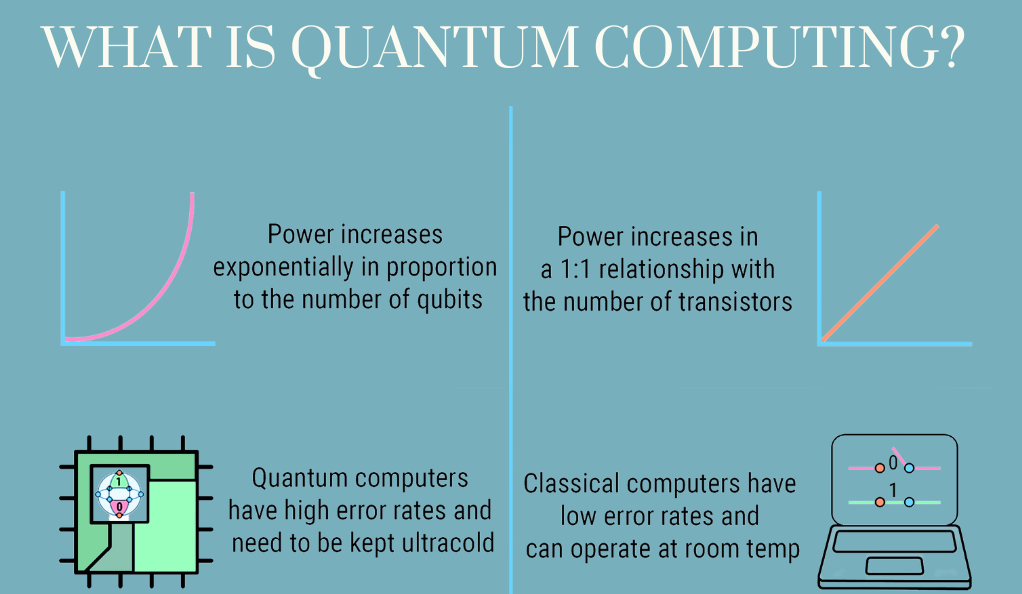What is quantum computing more about? This question invites us to delve into a domain that tantalizingly interlaces the realms of theoretical physics, computer science, and ethical considerations. As we embark on this intellectual journey, a playful yet profound challenge emerges: can we harness the unfathomable complexities of quantum mechanics to revolutionize the very architectures of computation? In addressing this inquiry, we will explore the fundamental concepts of quantum computing, its mechanisms, its potential impact, and the ethical dilemmas it poses.
Quantum computing, at its core, is an evolution of traditional computing, propelled by the principles of quantum mechanics. Classical computers process data in binary form, utilizing bits that exist as either 0s or 1s. Quantum computers, however, employ quantum bits or qubits, which contrast sharply with their classical counterparts. Qubits can exist in multiple states simultaneously, thanks to a property known as superposition. Unlike a classical bit, which is either on or off, a qubit can be both on and off at the same time, introducing an unparalleled complexity and efficiency to computation.
Further augmenting this computational potential is entanglement, another quintessential quantum property. When qubits become entangled, the state of one qubit is directly linked to the state of another, regardless of the distance separating them. This phenomenon enables quantum computers to perform complex calculations at a speed unattainable by classical machines. For instance, envision embarking on the task of factorizing large integers—a problem that serves as the backbone of contemporary encryption methods. A quantum computer could, with relative ease, decipher encrypted data that would take classical computers eons to unravel.
Moreover, the quantum computing paradigm opens myriad possibilities across diverse fields. In the realm of pharmaceuticals, researchers could simulate molecular interactions at an atomic level, drastically reducing the duration of drug discovery processes. In finance, quantum algorithms might revolutionize risk assessment and portfolio optimization, allowing traders to make decisions based on real-time data and simulations. The implications in artificial intelligence are equally profound, where quantum-enhanced machine learning promises to process large datasets with unfettered efficiency, potentially leading to groundbreaking advancements.
However, with great power comes great responsibility. The advent of quantum computing prompts a critical examination of ethical considerations, particularly concerning security and privacy. The very capabilities that render quantum computing so powerful also pose existential threats to current security protocols. Traditional encryption methods may become obsolete, rendering sensitive information vulnerable to exploitation. As quantum capabilities advance, the need for new, quantum-resistant algorithms becomes increasingly urgent. It begs the question: can society evolve its security frameworks swiftly enough to counteract the threats posed by quantum technologies?
Furthermore, the digital divide might be exacerbated by this technology, as the infrastructure required to harness quantum computing is extraordinarily sophisticated. It requires significant investment, advanced knowledge, and considerable research funding, which may not be evenly distributed across the globe. This disparity in access raises ethical concerns about technology equity and the potential for a quantum divide, entrenching existing socio-economic inequalities rather than alleviating them.
Moreover, the environmental impact of quantum computing cannot be overlooked. The extensive resources required to build and maintain quantum computers, including qubit systems that often necessitate extreme cooling conditions, provoke questions about the sustainability of such technologies. Each qubit in a quantum computer must be isolated from its surroundings to maintain coherence, demanding cutting-edge materials and energy-intensive systems that may challenge our ecological commitments. Does the pursuit of advancing human knowledge justify the potential detriment to our planet?
As we reflect on these challenges, we encounter a pivotal consideration: governance in quantum computing. The emergence of this transformative technology necessitates frameworks that ensure ethical innovation, equitable access, and environmental stewardship. Policymakers, technologists, and ethicists must collaborate to forge heuristic strategies that address these concerns preemptively. A global discourse is imperative, framing regulations that can harness the benefits of quantum computing while mitigating its associated risks.
In conclusion, the question of what quantum computing is more about extends beyond the technical marvels of qubits and entanglement. It encapsulates a broader narrative—a narrative that intertwines the complexities of scientific progress with the moral compass guiding its deployment. Quantum computing holds the potential to redefine the landscape of computation and its applications across various sectors. However, as we stand on the precipice of this computing revolution, we must navigate the ethical labyrinth it presents. Ultimately, the intersection of innovation and responsibility will dictate not only the trajectory of quantum computing but the very fabric of our society moving forward.












